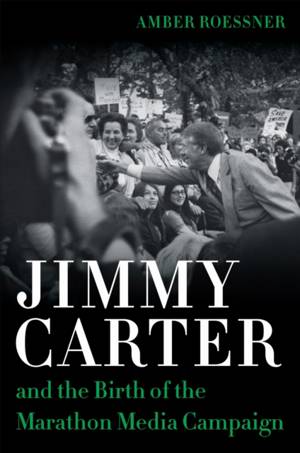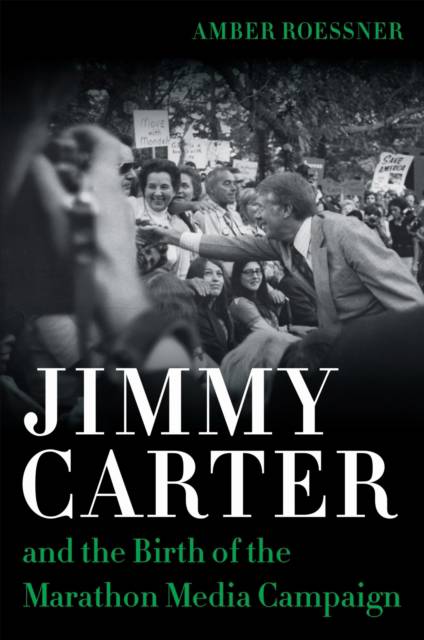
Bedankt voor het vertrouwen het afgelopen jaar! Om jou te bedanken bieden we GRATIS verzending (in België) aan op alles gedurende de hele maand januari.
- Afhalen na 1 uur in een winkel met voorraad
- Gratis thuislevering in België vanaf € 30
- Ruim aanbod met 7 miljoen producten
Bedankt voor het vertrouwen het afgelopen jaar! Om jou te bedanken bieden we GRATIS verzending (in België) aan op alles gedurende de hele maand januari.
- Afhalen na 1 uur in een winkel met voorraad
- Gratis thuislevering in België vanaf € 30
- Ruim aanbod met 7 miljoen producten
Zoeken
Omschrijving
With the rise of Jimmy Carter, a former Georgia governor and a relative newcomer to national politics, the 1976 presidential election proved a transformative moment in U.S. history, heralding a change in terms of how candidates run for public office and how the news media cover their campaigns.
Amber Roessner's Jimmy Carter and the Birth of the Marathon Media Campaign chronicles a change in the negotiation of political image-craft and the role it played in Carter's meteoric rise to the presidency. She contends that Carter's underdog victory signaled a transition from an older form of party politics focused on issues and platforms to a newer brand of personality politics driven by the manufacture of a political image. Roessner offers a new perspective on the production and consumption of media images of the peanut farmer from Plains who became the thirty-ninth president of the United States. Carter's miraculous win transpired in part because of carefully cultivated publicity and advertising strategies that informed his official political persona as it evolved throughout the Democratic primary and general--election campaigns. To understand how media relations helped shape the first post--Watergate presidential election, Roessner examines the practices and working conditions of the community of political reporters, public relations agents, and advertising specialists associated with the Carter bid. She draws on materials from campaign files and strategic memoranda; radio and TV advertisements; news and entertainment broadcasts; newspaper and magazine coverage; and recent interviews with Carter, prominent members of his campaign staff, and over a dozen journalists who reported on the 1976 election and his presidency. With its focus on the inner workings of the bicentennial election, Jimmy Carter and the Birth of the Marathon Media Campaign offers an incisive view of the transition from the yearlong to the permanent campaign, from New Deal progressivism to New Right conservatism, from issues to soundbites, and from objective news analysis to partisan commentary.Specificaties
Betrokkenen
- Auteur(s):
- Uitgeverij:
Inhoud
- Aantal bladzijden:
- 352
- Taal:
- Engels
- Reeks:
Eigenschappen
- Productcode (EAN):
- 9780807170793
- Verschijningsdatum:
- 20/05/2020
- Uitvoering:
- Hardcover
- Formaat:
- Genaaid
- Afmetingen:
- 168 mm x 231 mm
- Gewicht:
- 635 g

Alleen bij Standaard Boekhandel
+ 138 punten op je klantenkaart van Standaard Boekhandel
Beoordelingen
We publiceren alleen reviews die voldoen aan de voorwaarden voor reviews. Bekijk onze voorwaarden voor reviews.









